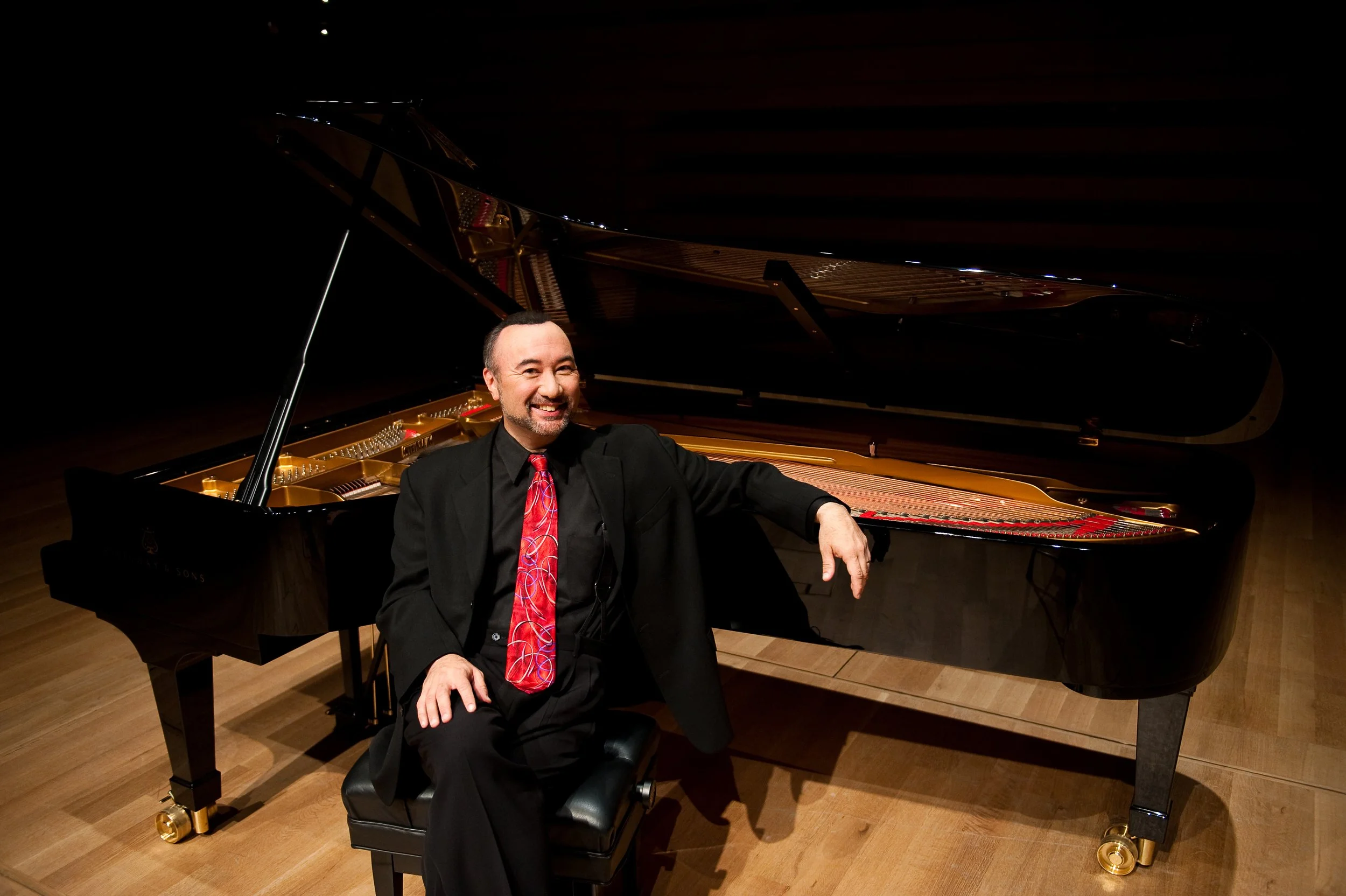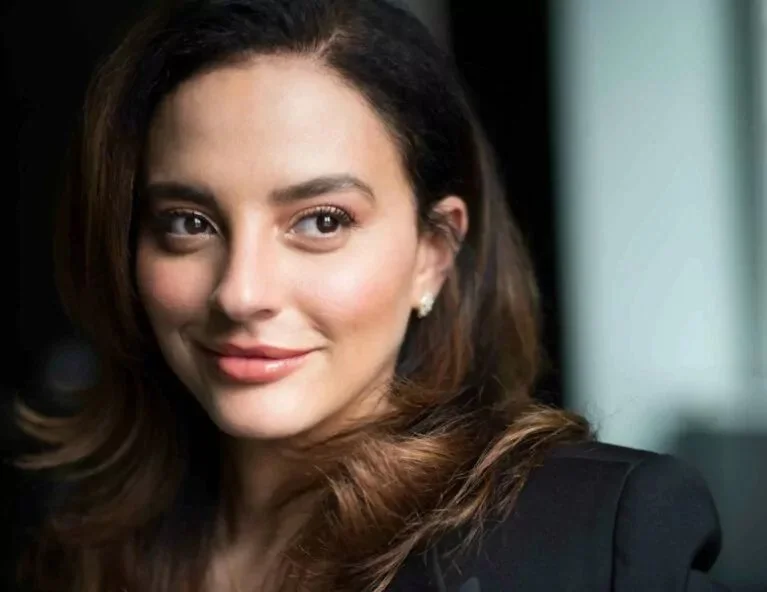Piano virtuoso Jon Kimura Parker injects energy into Bernstein’s “Age of Anxiety”
Upcoming performance with Vancouver Symphony Orchestra features the legendary composer’s Symphony No. 2, which is entirely unlike most other piano concertos
Jon Kimura Parker. Photo by Tara McMullen; photo direction by Liz Parker
Vancouver Symphony Orchestra presents Jon Kimura Parker Plays Bernstein on November 11 and 12 at 8 pm at the Orpheum
AS A PIANO PLAYER who brings as much enthusiasm as technical expertise to the stage, Jon Kimura Parker has wowed audiences everywhere from Carnegie Hall to the Beijing Concert Hall with concertos by Beethoven, Brahms, Tchaikovsky, Rachmaninoff, and many others. Most recently, he stepped in as a last-minute substitute in Sarasota, Florida, for three performances of the Grieg Piano Concerto. When the artist returns to his home town this weekend for concerts with Vancouver Symphony Orchestra, he’ll play Bernstein’s Symphony No. 2, “Age of Anxiety”—and he’s quick to point out that it’s completely unlike other concertos.
“When composers write a piano concerto, other than the purity of their artistic vision of the form, they tend to cast the pianist in a kind of heroic light,'' says Parker, who goes by the nickname “Jackie”, in a phone interview with Stir. “There are big virtuous passages and, depending on the composer, there’s a bit of a showy element….To different extents, there’s a combination of artistic statements, musical content, and a virtuoso showpiece that’s built into it. What’s really cool about playing the Bernstein is that it’s not that kind of piece. It’ll confuse the audience a bit.”
Based on W.H. Auden's 1947 book-length poem “The Age of Anxiety”, Bernstein’s work was commissioned by his mentor, Serge Koussevitzky, and premiered with the Boston Symphony two years later. The 80-page poem follows four strangers who meet in a New York bar during the war and spend the night talking about the human condition and their own angst. “The essential line of the poem (and of the music) is the record of our difficult and problematical search for faith,” Bernstein once said.
“It’s a highly serious work, and it’s a philosophical work,” Parker says. “My part as pianist is one of the protagonists in this story. There are moments where the orchestra has most of the important material, and then there are moments where the piano absolutely takes over.
“There’s a section near the end called ‘The Masque’, which is basically a jazz combo,” he continues. “I’ve spoken with the conductor, Karen Kamensek, and she’s going to have a set of drums and some of the percussion up front near the piano instead of in the very back so we feel more like a jazz combo….It’s a very different kind of work. The piano does not have these big, crashing final chords or go out in a blaze of glory. It’s more a pure artistic statement, which is probably one of the reasons it doesn’t get performed anywhere near as often as it should. Pianists like to be the hero at the end of the work, but honestly I’ve done that so many times in Vancouver, and to be able to play this work with such a good orchestra and with a conductor who is spectacular, is very exciting.”
Also on the VSO concert program—in which Kamensek, a Grammy-winner, is making her VSO debut—is Kodály’s Dances of Galánta and the world premiere of Vivian Fung’s Flute Concerto, a VSO Commission performed by the organization’s principal flute, Christie Reside.
Parker’s upcoming local concerts mark a homecoming not only in the sense that Vancouver is his birthplace but also because he made his professional debut with the VSO in 1980 at age 20 (with the same Grieg concerto he recently played in Florida). He went on to live in New York for many years, and now, Parker splits his time with his wife, violinist/violist Aloysia Friedmann, between Houston, where he’s chair of the piano faculty at Rice University (its Shepherd School of Music is one of top music schools in North America) and on Orcas Island. He’s artistic advisor for the Orcas Island Chamber Music Festival, where he performed with Stewart Copeland for its 20th anniversary. He’s also creative partner of the Minnesota Orchestra and artistic director of the Honens International Piano Competition, and he tours with the Montrose Trio, which he founded with Martin Beaver and Clive Greensmith.
Another distinguishing feature of Bernstein’s “Age of Anxiety”, Parker says, is that it’s one of the most difficult pieces he plays. “It’s challenging partly because there’s a certain athletic requirement for the big passages, where I’m jumping around the keyboard a lot. That’s very obvious in ‘The Masque’ jazz section….But also it’s not a harmonic language I usually work in. Bernstein is interesting; he was several composers at once.
“There are moments in this piece where you can definitely hear the Broadway side of Bernstein,” he says. “You can hear moments that sound a lot like West Side Story…but then he didn’t want this to sound like Broadway; he wanted it to sound more like an artistically conceived symphony, so he uses a lot of the kind of American vernacular, mid 20th-century language, and that’s not a musical area I live in all that often. I have to really think about training my fingers to go in the right place at the right time.”
Regardless of the complexity or drama of any given piece, Parker remains enamoured with the art and act of performing. You could say it came naturally to him; his uncle was renowned piano player Edward Parker, and his mother, Keiko, is a piano instructor who became his official teacher. His parents listened to CBC Radio while he was growing up, which in the 1960s meant he was exposed to classical music daily. He was three years old when he walked over the upright piano and played the broadcaster’s theme music with one finger.
Parker is inspired by his three favourite pianists, all of whom he has met in person: Arthur Rubinstein (who used to perform in Vancouver; Parker’s father took him backstage when he was 10 to meet the musical giant); Oscar Peterson (who once took Parker to a jazz club in New York, “the kindest, most gracious man I knew”); and Elton John.
“I love them all for the same reason: their joy of performing and communicating,” Parker says. “The actual medium is not as important as what it is that they contribute and what they bring to performance.”













